Seminario de Investigadores (2o Semestre 2018)

Sala de Seminarios, Fernando Salmerón, IIFs - UNAM
|
Agosto.2018 |
||
|
8 |
Scott Aaronson (Universidad de Texas en Austin) " The P vs. NP Problem " I'll discuss the status of the P=?NP problem in 2018, offering a personal perspective on what it's about, why it's important, why many experts conjecture that P!=NP is both true and provable, why proving P!=NP is so hard, the landscape of related problems, and crucially, what progress has been made in the last half-century. I'll say something about diagonalization and circuit lower bounds; the relativization, algebrization, and natural proofs barriers; and the recent works of Ryan Williams and Ketan Mulmuley, which (in different ways) hint at a duality between impossibility proofs and algorithms. |
|
|
|
||
|
15 |
Michail Peramatzis (Universidad de Oxford) "Aristotle on How Essence Grounds Necessity"
Reseña
________________________ |
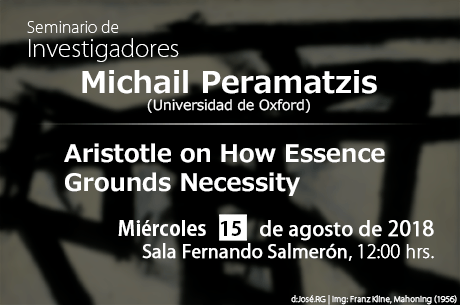 |
|
|
||
|
22 |
José Antonio Chamizo (IIFs-UNAM) Sobre continuidad y ruptura en la historia de la química. Las revoluciones químicas "laminadas". |
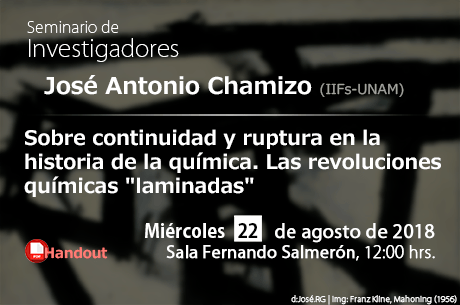 |
|
|
||
|
Septiembre.2018 |
||
|
5 |
Pedro Stepanenko (IIFs-UNAM) Contenidos no-conceptuales de la experiencia en Kant
|
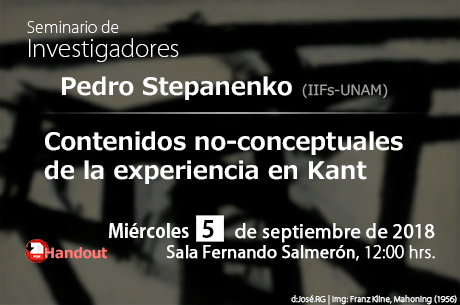 |
|
|
||
|
12 |
Graham Priest (CUNY) Fictional Object Fictional Subject In some incontestable sense, fiction involves a relationship with two poles, subject and object: the subject who engages with the fiction, and the objects of the fiction with which they engage. This talk is about the two poles of this relationship. The most notable thing about the object pole is that many of its denizens appear to be non-existent. But is this, indeed, the case? Can there really be non-existent objects? Turning to the subject pole: the subject, unlike many objects of fiction, would certainly appear to exist. But does it? As Buddhism argues, perhaps this is no more existent then the purely fictional objects.
|
|
|
|
||
|
19 |
Antonio Zirión Quijano (IIFs-UNAM) Tentativas Husserlianas sobre el cuerpo, la conciencia y el mundo de los animales |
|
|
|
||
|
26 |
Byron Davies (IIFs-UNAM, estancia posdoctoral) The Affective and the Political: Rousseau and Contemporary Kantianism Jean-Jacques Rousseau is often associated with a certain political mode of relating to another, where a person (“a Citizen”) is a locus of enforceable demands. I claim that Rousseau also articulated an affective mode of relating to another, where a person is seen as the locus of a kind of value (expressive of their being an independent point of view) that cannot be demanded. These are not isolated sides of a distinction, for the political mode constitutes a solution to certain problems that the affective mode encounters in common social circumstances, allowing us to see how these modes might be distinct while the political nevertheless shapes the affective. I contrast this approach with that of some contemporary Kantian writers on affective phenomena (Sarah Buss on shame, and J. David Velleman on love) who, for reasons rooted in Kant’s moral philosophy, have modeled affective ways of relating to others on duty. I claim that Rousseau’s writing provides us with a way of capturing the correct insight of these accounts—that some of our emotional responses to others are ways of appreciating their personhood—while avoiding the characteristic implausibilities of their close association between the affective and the political.
Reseña |
|
|
|
||
|
Octubre.2018 |
||
|
3 |
Santiago Amaya (Universidad de los Andes) Vigilancia |
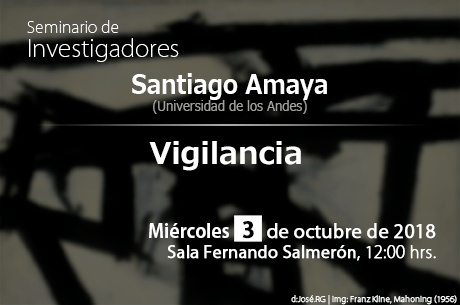 |
|
|
||
|
10 |
Kirareset Barrera García (Facultad de Psicología) Algunos conceptos relevantes para la investigación sobre metáfora
Reseña |
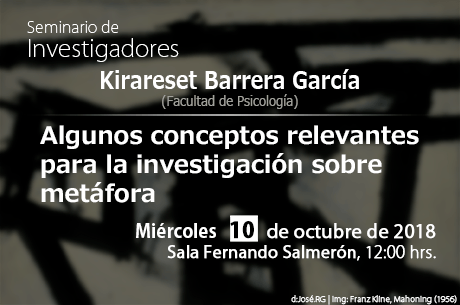 |
|
|
||
|
17 |
Kenneth Williford (University of Texas Arlington) Consciousness and Projective Geometry Abstract: I summarize a model of consciousness called the Projective Consciousness Model (PCM), which combines a projective geometrical model of the phenomenological structure of consciousness with a variational "Bayesian", free-energy minimization model of its cognitive and affective dynamics, and relate it to some outstanding conceptual issues in the theory of consciousness and philosophy of mind, including the so-called Hard Problem and the problem of de se attitudes. |
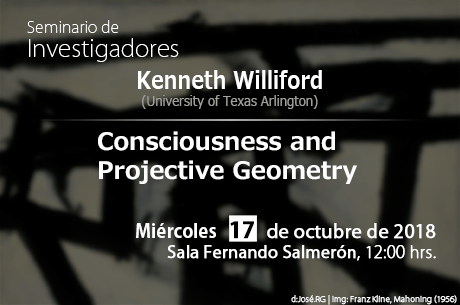 |
|
|
||
|
24 |
Amalia Amaya (IIFs-UNAM) Virtudes, deliberacion colectiva y razonamiento probatorio en el Derecho
|
|
|
|
||
|
31 |
Pedro Stepanenko (IIFs-UNAM) Contenidos no-conceptuales de la experiencia en Kant |
|
|
|
||
|
Noviembre.2018 |
||
|
7 |
Jonathan Crowe (Universidad de Bohn, Australia) Intelligibility, Practical Reason and the Common Good |
|
|
|
||
|
14 |
Erik Rietveld (Universidad de Amsterdam) Social Affordances in Context: The Skilled Intentionality Framework Reseña
|
|
|
|
||
|
21 |
Paloma Atencia (IIFs-UNAM) La Inmersión Narrativa como Fenómeno Atencional
|
|
|
|
||
|
28 |
James Nickel (Universidad de Miami) What Future for Human Rights? Modera: Juan Antonio Cruz Parcero
|
|
Seminario de Investigadores (1er Semestre 2018) »
Aviso de privacidad
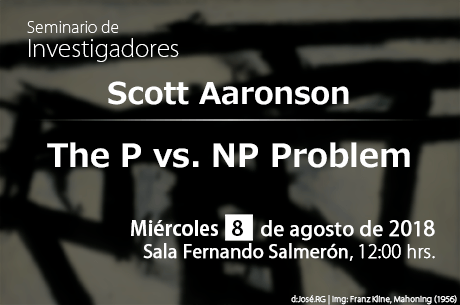
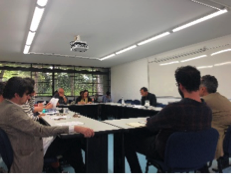
 Texto
Texto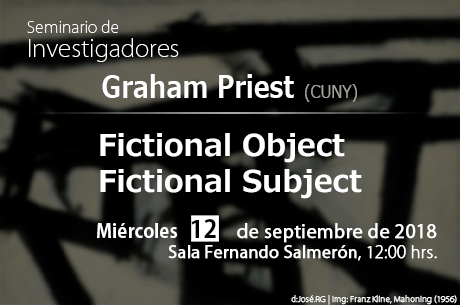

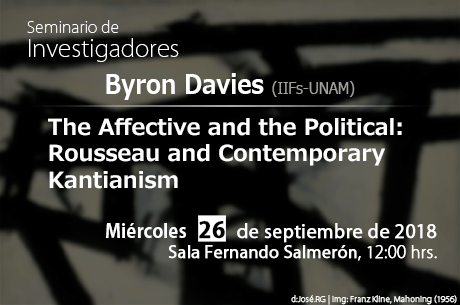
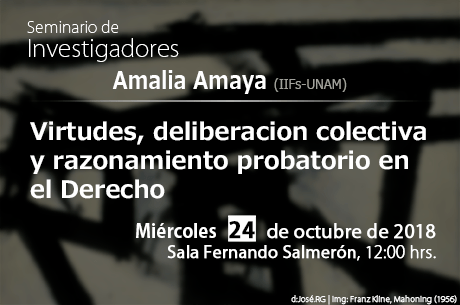
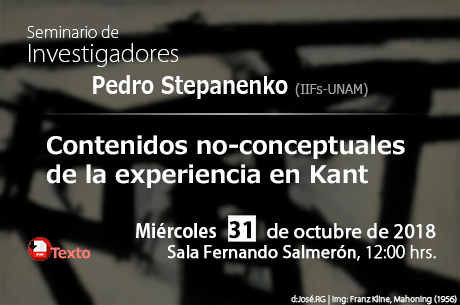
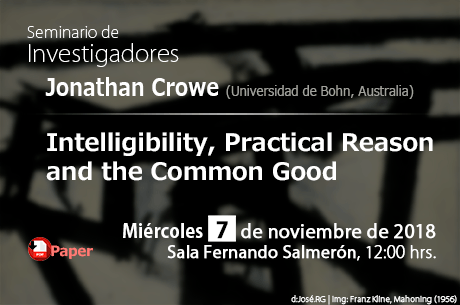
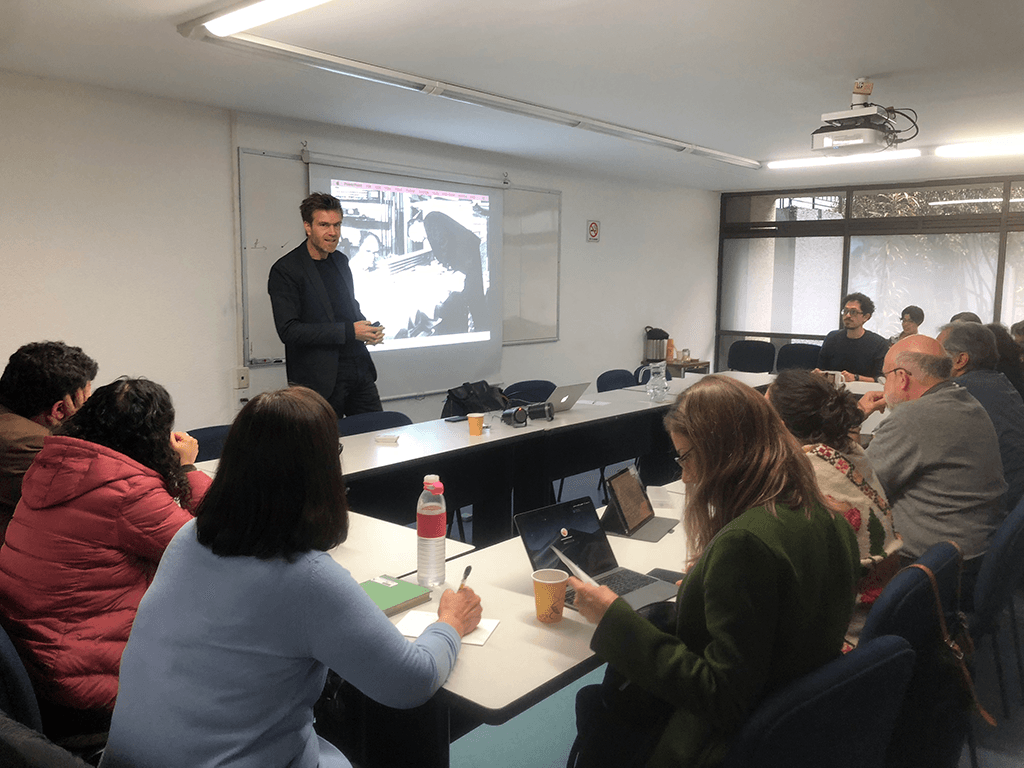
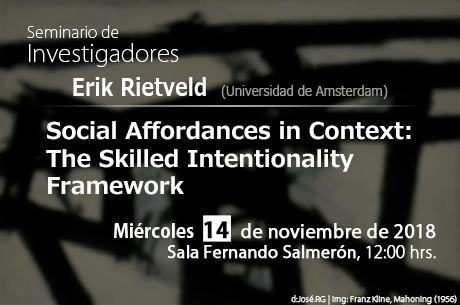
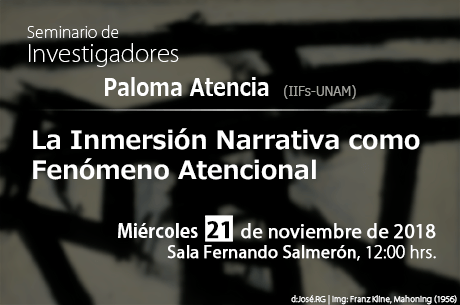
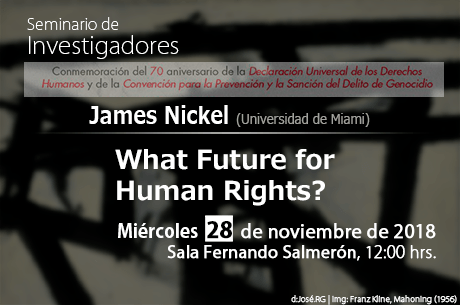



 Circuito Maestro Mario de la Cueva s/n, Ciudad Universitaria, C.P. 04510, Coyoacán México, CDMX
Circuito Maestro Mario de la Cueva s/n, Ciudad Universitaria, C.P. 04510, Coyoacán México, CDMX